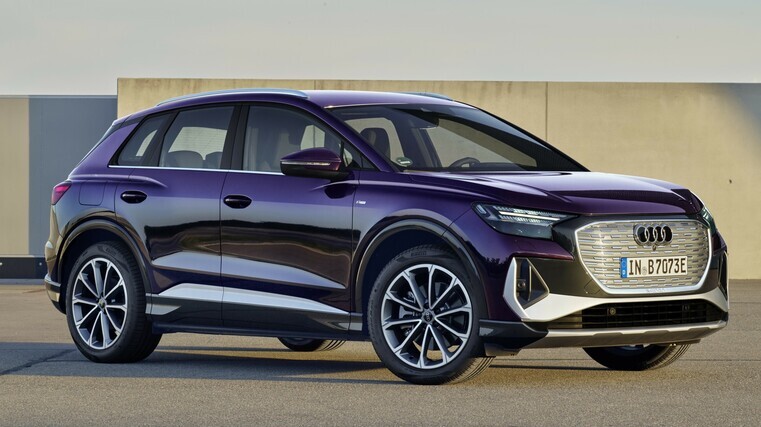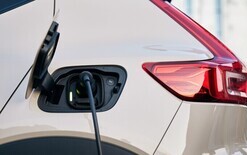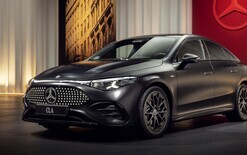Tough year for luxury marques

Audi’s global sales came in at 1.67 million vehicles in 2024, a drop of 11.8 per cent from the 1.9 million sold in the year prior.
The luxury marque’s total for last year includes more than 164,000 fully electric models, which was down by eight per cent from 2023, with the Audi Q4 e-tron, pictured, leading the way on almost 108,000 units.
The company says the reasons for the overall year-on-year decline were challenging economic conditions, an intensely competitive market, and limited availability of parts.
It adds the brand’s new product portfolio is also only gradually having an impact on global sales volumes.
“The year 2024 was part of a transitional phase as we move towards our new product portfolio,” explains Gernot Dollner, Audi’s chief executive officer.
“Global economic uncertainties and intensified competition also shaped the past year. Despite these challenges, we are convinced that we will achieve our long-term goals.
“With a clear product and technology road map, Audi is systematically rejuvenating its product portfolio with over 20 new models in 2024 and 2025.”
Other best-sellers for Audi last year were the Q5 with 298,000 units, the A6 on 244,000 and the Q3 with 215,000.
The number of deliveries in Europe, excluding Germany, was almost six per cent below the previous year after reaching about 466,000 vehicles.
In Germany, Audi’s sales fell 21 per cent year-on-year to more than 198,000 cars, with fully electric vehicles dropping 33 per cent to roughly 22,000.
As for North America, the marque delivered just below 241,000 vehicles for a fall 13 per cent) in 2024, while in China sales declined about 11 per cent to more than 649,000 cars.
Overseas and emerging markets suffered an 18 per cent tumble in 2024 with the total of deliveries coming in at more than 116,000 vehicles.
Audi notes that after a record year in 2023, geopolitical and industrial conditions impacted delivery figures in 2024.
It says in a statement that the general economic environment characterised by stagnation and structural problems as well as a tense political situation posed major challenges for the entire automotive industry and influenced consumer behaviour.
Marco Schubert, board member for sales and marketing, adds: “We have strong models entering the markets, but they will only gradually become significant in terms of sales volume. At the same time, some models have been phased out.
“Challenging economic conditions and the intransparency in terms of government incentive structures are currently causing a certain reluctance to buy affecting the entire industry, especially when it comes to fully electric vehicles.”
BEV demand slumps
Mercedes-Benz also suffered a drop in car sales last year, with the 1.98 million sold down three per cent from 2023.
The total was weighed down by a seven per cent drop in China and a three per cent fall in Europe.
Annual sales of battery electric vehicles slumped 23 per cent over the same period to 185,100 units, reports Reuters.
The marque says the figures reflect a tough year for the automotive industry marked by waning demand in a weak economy, especially in China.
A bright spot for Mercedes-Benz was a three per cent quarterly rise in October-December sales for its core car unit, which it says was driven by a jump in top-end vehicle sales.
Fourth-quarter car sales were up one per cent compared with the same period of 2023.





